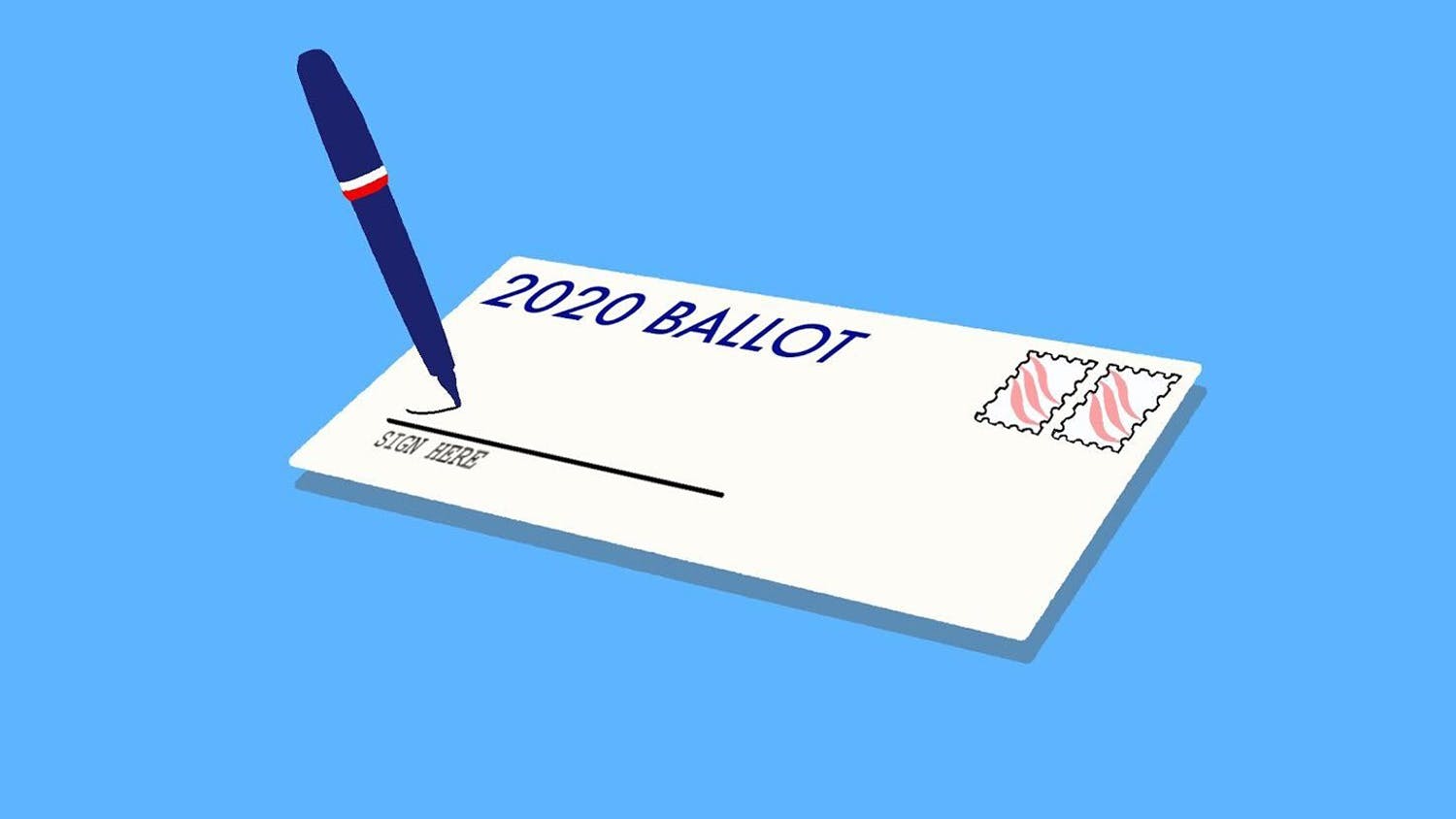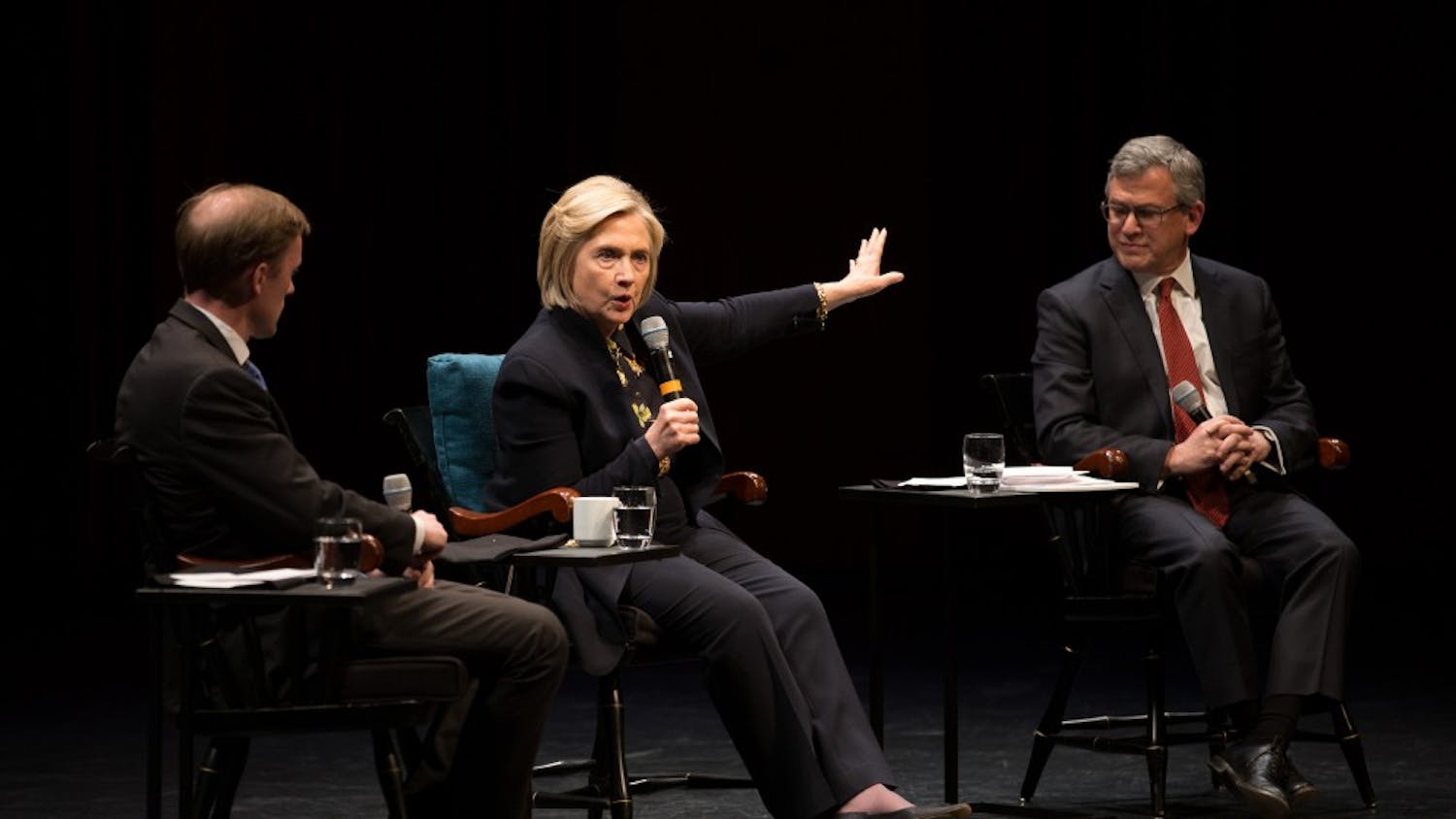Democrats view an electoral “inversion” — when a candidate wins the Electoral College vote but not the popular vote — as less credible than an election in which the same candidate wins both the Electoral College and the popular vote, according to a new study whose authors include government professors John Carey and Brendan Nyhan.
The study, released in September, was conducted as a set of two surveys this spring. It determined that Democrats view an electoral inversion as a “less legitimate” outcome, regardless of which party wins. Republicans, on the other hand, considered an electoral inversion equally legitimate.
Two of the last five presidential elections have been won by candidates who won the Electoral College but not the popular vote. Both winning candidates, George W. Bush in 2000 and Donald Trump in 2016, were Republican. As of press time, forecasts from The Economist and FiveThirtyEight estimate a 10% probability that President Donald Trump will win in an electoral inversion this November.
According to Carey, the experiment posed hypothetical election scenarios that varied in terms of whether or not the participant’s party won. After hearing the results of the hypothetical election, participants were asked whether they thought the election was legitimate.
The study found that inversions “significantly decrease” the perceived legitimacy of the election’s winner for Democratic respondents, regardless of which party the winning candidate belongs to. Carey said that he and his research team were so surprised by the results of the initial experiment that they ran the surveys again.
“Our original hypothesis going in was ‘When an inversion happens, I’m going to regard it as damaging to legitimacy if the other party benefits, but if my own party benefits from it I won't,’” Carey said. “We didn't find that.”
Although surveyed Democrats viewed an election inversion as less legitimate and Republicans did not, the margin by which a candidate won the popular vote did not appear to have an effect on responses.
Carey said the differences between Democrats and Republicans in their response to an election inversion likely stem from how elections have played out historically. While the 2000 and 2016 presidential elections both ended in favor of Republican candidates, Democrats have not yet experienced an election in which their candidate won through an election inversion.
“It seems pretty straightforward that Democrats are more sensitive to the prospect of [an election inversion] happening again,” Carey said. “There's a substantial chance that President Trump would win reelection in the Electoral College without winning the popular vote, and there's almost no chance that the reverse would happen.”
Shun Yamaya, a postgraduate fellow at Stanford University and a coauthor on the study, said that the study reveals important information regarding U.S. voter behavior.
“[Election inversions] are really hard phenomena to study because they are so rare, and our attempt is kind of a stab at it,” he said.
Yamaya, who was involved in idea generation, administering the experiment and hands-on data work under the supervision of Carey and Nyhan, added that the study has some limitations in terms of real world application.
“[The data] show how the U.S. public might react, but at the same time we don't consider the real possibility that election results may not be clear immediately, or that there may be longstanding kind of disbelief in the actual tallied results,” Yamaya said.
He explained that the survey focuses on election outcomes and does not consider the voting process.
“You can expect people to have an even more fundamental distrust in the [election] process itself,” Yamaya said.
Carey said that election inversions will increase partisanship, especially if an election inversion in favor of the Republican Party occurs again this November. According to the study, Republicans may continue benefiting from the Electoral College in future elections.
Until both parties experience an inversion, bipartisan support of Electoral College reform will be challenging to accomplish, Carey said. He noted that there is “no viable path” to the constitutional amendment needed to reform the Electoral College.
Carey mentioned a different possible path to reform, known as the National Popular Vote. Fifteen states, as well as Washington D.C., have agreed to award their electoral votes to whichever candidate wins the national popular vote. Together, these states would account for 196 electoral votes. Other states could follow.
“It’s a very clever work-around based on this recognition that there's no way we're going to get the kind of supermajorities necessary to amend the Constitution,” Carey said.
Government professor Herschel Nachlis said that the study’s findings on voters’ attitudes toward the Electoral College have persisted in the national consciousness since the elections of 2000 and 2016.
“I think 90% of my students, when thinking about campaigns and elections, have mentioned dissatisfaction with the Electoral College,” Nachlis said. “... I think that the study's results are fully consistent with that — this is something that a lot of people are aware of and are worried about.”
Nachlis added that the study shows trends in political sentiment that may bring changes to the Electoral College in the future.
“Things don't change overnight … but they portend important changes that are potentially incremental leading up to something big,” Nachlis said. “The results in this study and the mobilizations happening this country suggest that some changes are likely to come.”





